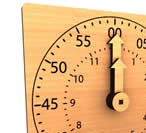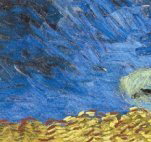|
|
|
You can clearly remember the first time it happened, when some childhood playmate had first uttered one of those words, the words that hurt.
She pulled you up by your hands and pleaded with you to say that you were fine, that everything was alright, and you told her that it was, and she seemed relieved. As she pressed your body close to hers, you noticed that you were in the center of a ring of stunned children and their parents, and that they were speaking quietly to each other, and that it all seemed very rude at the time. You imagined that they were not saying nice things. On the way home in the station wagon, you were interrogated as to the nature of your ailment, or rather, your attack. When you tried to explain to your mother that a word had lit a fire in your head, there was at first confusion, then disbelief, and then denial. You wanted to tell her what the horrible word was, but you were afraid to put the sound of it in the open air again. For a long time after that, you learned to live with the reality that some words hurt, some words hurt not so much, and many words hurt not at all. Your mother spoke no more of the playground incident, but you were never allowed to go back there, either. You heard your mother on the phone one day, telling another lady that a mean boy at the playground had hurt you, and you said nothing, because that was the way you saw it, too. Some months later, you were in Mrs. Smigal’s first grade classroom, learning to tell time. Mrs. Smigal was using an oversized, thin pressboard clock to teach the children. On it were large red hands that could be maneuvered around the face, and she asked each child in turn to interpret the position of the hands on the clock. Still unclear about the concept of “big hand, little hand”, you sat there, dreading the moment when you would be called on. When your turn came, the entire class seemed to face you, and you responded by sticking a pencil in your mouth. When Mrs. Smigal repeated her inquiry, you shriveled up your nose and tried to imagine that you were a bunny. Finally, you blurted out “Seventeen o’clock?” This pronouncement produced uproarious laughter in the room, which was fine with you, because you liked to make people laugh. People who laughed were nicer, and they didn’t say the mean words. People laughed a lot when they were around you. As you sat there, Carla Latney, the prissy girl who sat in front of you, turned in her seat and looked you straight in the eye. “You’re a dummy”, she said. The word struck you in the abdomen like a fist, sucking all of the air out of your lungs, and you fell sideways out of your chair onto the floor. There you lay, gasping and wheezing, just like your grandfather had in the year before he died. You wondered if you were about to die. After spending a little time with the school nurse, your mother took you to see a pediatrician, and eventually a psychiatrist. You explained to everyone who would listen just what it felt like when someone said one of those words, and lots of grownups watched you with sad eyes, and nodded their heads sympathetically. Your mother began giving you medicine every morning before school, and you didn’t want to take it, but your mother said that it would make her happy, so you did. You didn’t like the taste, which was worse than aspirin, and not even a full glass of water could get rid of the bitterness in your mouth. You didn’t like the way the medicine made you feel, either. But you took it anyway, and your mother smiled at you as you did. The medicine was supposed to make the bad words stop hurting you, but it didn’t. Some words just stung a little, like being stuck by a sharpened pencil. “Pitch” and “Kick” were words like this, and you were able to ignore them for the most part. To the other children, you must have appeared to be a rather strange, twitchy child at those moments. Other words hurt more, like “Freak”, which you heard often. This word bit you like a horsefly, sometimes on the arms and legs, but usually on the face. Once when a particularly horrid little boy used that word on you and saw your reaction, he kept shouting it until you ran away in tears. And then there were those really bad words. “Monster” and “Stupid” were words such as these. When these razors were flying, the sounds cut you, and tore at your flesh. The letters ripped at your chest and thrust deep into your heart. At times like these, you would crumble into a pile of shredded agony, and would be hurriedly hauled away to safety. Of course, there were nice words, too. “Swing” was a nice word. It felt like a cool breeze blowing through your hair. “Lovely” had an effect not unlike someone massaging your shoulders. You didn’t hear enough nice words, though. Yet from the depths of your anguish came a gift. To free yourself from the words that hurt, you spent more and more time alone. In this time locked away from the world, you began to paint.
Your paintings became an alternate universe, where silence reigned and you were happy. In the world you painted, the sun exploded across the sky and the starlight streamed down to the horizon. Flowers that poured from your brush seemed to dance on the canvas, and fields of grass quivered with excitement. The only objects that seemed lifeless in your visions were the people. As you matured, so did your work, and as a young man you found for yourself a small niche as a painter of scenes and landscapes, and this pleased you. It wasn’t long before your talent had developed to a point where you could sustain yourself by your painting, and you left the security of your mother’s house. Traveling across the country, you painted what you saw, the way you saw it. Since your school years, you had been medicated with a series of psychotherapeutic regimens, each with varying degrees of success. Now, as an adult, you chose to live without the chemical cocktails, seal yourself off from people who used the bad words, and live through your art. On the road, no one knew you, no one knew your history, and all they saw was your gift. You stopped hearing the words that hurt from the mouths of those around you, and you flourished. That is, until the words caught up with you again in Philadelphia, where some asshole director of a small time art shop who had probably never painted anything more imaginative than a black velvet tiger looked at your stuff. This moron snorted, wiped his runny nose and said that you were ju It didn’t bother you at first, you were too angry to think much about what he‘d said. Later that night, you were carefully adding brush strokes to a water scene when the word “Cheater” split your head as if you had been struck by an axe, burying itself deep inside your gray matter, twisting and turning and sending rivers of electric pain through your neck, arms and legs. You dropped the brush and fell to the floor, shaking uncontrollably. Once your breathing had returned to normal, and the excruciating pain had subsided, you cried, because the words had found you while you were alone, and you knew that the words would always find you, always ready to hurt you again and again. For weeks you tried your best to pretend that it hadn’t happened, but new words started coming, mostly at night when you wanted to fall asleep. As you lay there, a single massive knot of tension, knowing that the words were waiting for you, waiting for you to let your guard down, but you didn’t, you wouldn’t, and they came anyway. The words were vicious and brutal, and they sent you twisting and curling up in a fetal position on your mattress, screaming alone in the night, wrenching your aching muscles in relentless convulsions of torture, and sometimes the words wouldn’t stop, and the convulsions went on and on until your were covered in sweat, shaking so violently against the wall that the neighbors thought you were fucking a woman again, just like every night these past few weeks, and they were going to call the cops, but you don’t want that because the cops will break the door down and see that its just you and they’ll see you soaking wet, white as a ghost, squeezing your head and howling and they’ll know you’re crazy and they’ll throw you in the nut house and they’ll never let you out and they won’t let you paint, and they’ll tell your mother, and she’ll cry and you’ll feel bad because you made her cry again after telling her that everything was ok now and that you were ok being on your own. And then it’s morning, and you drag yourself out of bed and your body aches. There’s blood in your mouth from where you must have bitten your tongue the night before, and there’s a note taped to your apartment door threatening to evict you if you don’t keep the noise down tonight. Now you sit there at your little kitchen table, staring at the salt and pepper shakers that your mom sent you at Christmas, and the napkin holder that you got at Wal-Mart last month. You wait patiently for the next visit from the people who say the words that hurt, because that’s when you’re going to shoot them, and shut their mouths forever. And you are not a cheater. |
 The two of you had been playing a game near the swings at the neighborhood park, when the other boy had called you a cheater. The letter combination became a stiletto digging into your little brain, cutting across all of the delicate nerve endings that surround your skull. You remember suddenly grabbing your head, screaming and falling face first into the sand. After that, you must have blacked out, because the next thing you remember is the panicked face of your mother against the bright blue sky as you lay in the sand.
The two of you had been playing a game near the swings at the neighborhood park, when the other boy had called you a cheater. The letter combination became a stiletto digging into your little brain, cutting across all of the delicate nerve endings that surround your skull. You remember suddenly grabbing your head, screaming and falling face first into the sand. After that, you must have blacked out, because the next thing you remember is the panicked face of your mother against the bright blue sky as you lay in the sand.
 Your paintings were crude at first, but they always reflected a vision of dazzling colors that seemed charged with life of their own, strange colors that others did not normally associate with the objects represented.
Your paintings were crude at first, but they always reflected a vision of dazzling colors that seemed charged with life of their own, strange colors that others did not normally associate with the objects represented. st another Van Gogh wannabe, that your paintings ripped off his genius.
st another Van Gogh wannabe, that your paintings ripped off his genius.